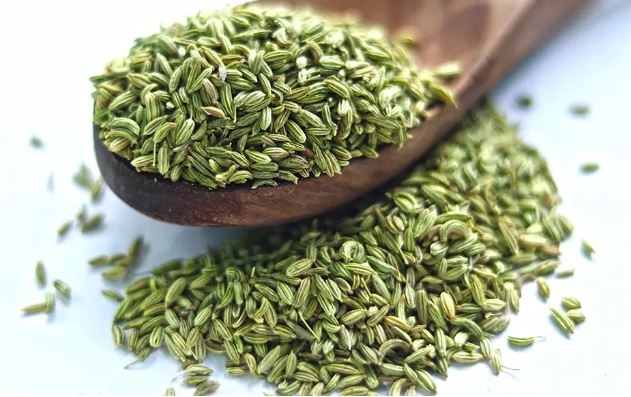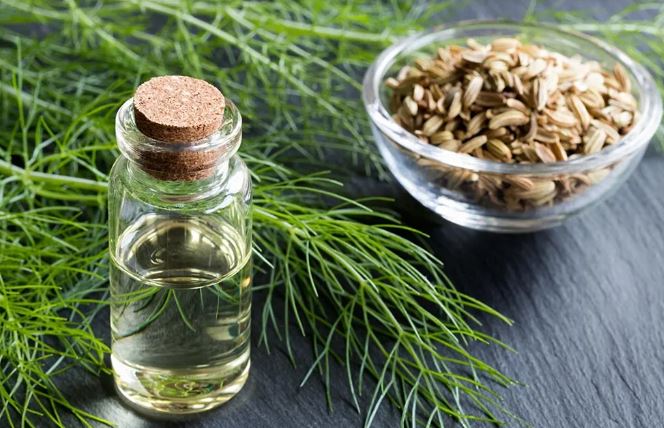Using Fennel While Breastfeeding – Does it Increase Milk Supply? Dr. Sebi Approved Herbs

It is typical for a new mother to worry about her ability to produce enough milk. You can run into a breast milk production issue while you are breastfeeding that you must have read about during your pregnancy but disregarded. If you are having trouble producing breast milk, your baby won't be satisfied with just breast milk and you may need to use formula milk to make sure that their nutritional needs are met. However, you must change your diet to boost your breast milk production if you don't want to give your infant formula. Fennel or fennel seeds are known to increase breast milk supply and it can even provide many health benefits to the baby.
Fennel: What Is It?
The herb fennel is frequently used in cooking and is well-known for its therapeutic benefits. Foeniculum vulgare, another name for fennel, belongs to the carrot family. It has feathery leaves and golden blossoms, and its use as a spice dates back to ancient Egypt. To encourage a healthy digestive system, fennel, also called as saunf in India, is frequently ingested after meals.
How Does Fennel Affect Milk Supply?
Yes, fennel aids in boosting breastmilk production. It has been used for millennia to boost nursing women's milk supply and is a well-known herbal galactagogue, a chemical that aids in raising breastmilk flow.
How Does Fennel Contribute to a Higher Supply of Breast Milk?
A galactagogue is a substance or meal that helps nursing women produce more milk. Fennel is regarded as one due to the presence of phytoestrogens, which are compounds that resemble the oestrogen hormone produced by the human body naturally. This herb has been used by women for this specific reason for such a long time, and it has worked for the majority of them.
Fennel: How to Eat It While Breastfeeding
You can use fennel in a variety of ways to address your breastfeeding issues. It is suggested that you only eat a tiny amount of it. Follow these instructions to incorporate fennel into your breastfeeding diet.
1. As a Tea- One or two tablespoons of fennel seeds should be added to a cup of boiling water and left to steep for a while to produce fennel tea. Refine the seeds later. For optimal benefits, sip this tea three times each day. To create fennel tea, you should only ever use freshly crushed fennel seeds.
2. Fennel seeds can be used as a flavoring agent in a variety of cuisines. Fennel can be used to improve the flavor of sauces and salads. Fennel seeds are incredibly adaptable, and one of the best ways to eat them is as a meal flavoring.
3. Presented as a Vegetable- It can even be eaten as a vegetable or added to other foods like soups.
4. Seeds of fennel- Chew raw fennel seeds to get the most out of this wonderful herb. If you don't like them raw, you can also roast them.
5. In capsule form
Taking fennel capsules to increase breastmilk production is an easy approach to make sure you get the ideal quantity each day. If you don't like the flavor of fennel seeds, capsules are useful.
6. Topical Uses for Fennel Oil
After you have finished breastfeeding your child, massage your breast with a mixture of about fifteen drops of fennel oil and one tablespoon of cold-pressed coconut oil, being careful not to apply it to your nipples. Always remember to give fennel oil a 10-day break when using it topically.
Does Fennel Have Any Side Effects on Mothers Who Breastfeed?
People utilize herbs without a second thought, but they should be used carefully since some herbs, if used improperly, can be quite harmful to your health. Always check your doctor before taking any kind of herbal medicine. Any herb used in extreme quantities may actually reduce your milk production. Therefore, before using fennel seeds to enhance your supply of breast milk, check with your doctor to discover whether you are allergic to it. Similar to this, before applying fennel oil topically, test it on a small area of skin to make sure you are not sensitive to it.
Additional Health Benefits of Fennel- Here are some additional health benefits of fennel that may interest you:
1. Prevents Anaemia
Consuming fennel seeds can treat anaemia. Fennel seeds contain histidine and are rich in iron. These two compounds can cure iron deficiency and thus treat anaemia.
2. Helps in Digestion
Fennel seeds are often consumed raw after meals in India as it helps in digestion. Fennel includes components that stimulate digestive juices and reduce any inflammation in the stomach and the intestines. This makes sure that the nutrients are properly absorbed into the system.
3. Cures Constipation
Fennel seeds have anti-acidic properties and fennel powder can be used as a very potent laxative. Fennel is an ingredient that is used in many medications to treat irritable bowel syndrome, abdominal pain, diarrhoea, and many other intestinal problems.
4. Regulates Blood Pressure
Fennel is rich in potassium. It is a great vasodilator and can ease tension in the blood vessels, which helps in regulating your blood pressure.
5. Boosts Immunity
Fennel seeds are a good source of vitamin C, which helps in boosting immunity. Including a cup of fennel bulb in your diet can meet 20% of your daily requirement of Vitamin C. Consuming fennel also promotes eye health and is good for your skin and hair.
When Should Breastfeeding Moms Avoid Fennel?
Although fennel helps in increasing breastmilk supply, it should be avoided in certain cases. A breastfeeding mother should avoid fennel under the following conditions.
1. Epilepsy or Other Seizures
If you have epilepsy or any other condition involving seizures, avoid the use of fennel. This is because it increases your chances of having an epileptic fit or a seizure. It is especially important to avoid it if you are still on your medications.
2. Diabetes or Hypoglycaemia
Fennel is known to have some benefits to mothers with diabetes, but they will need to take certain precautions during their nursing period. If you have diabetes, the risk of hypoglycaemia, increases. As fennel can reduce your levels of blood sugar, it is best for mothers with this problem to avoid fennel at all costs.



-250x250w.jpg)



Leave a Comment